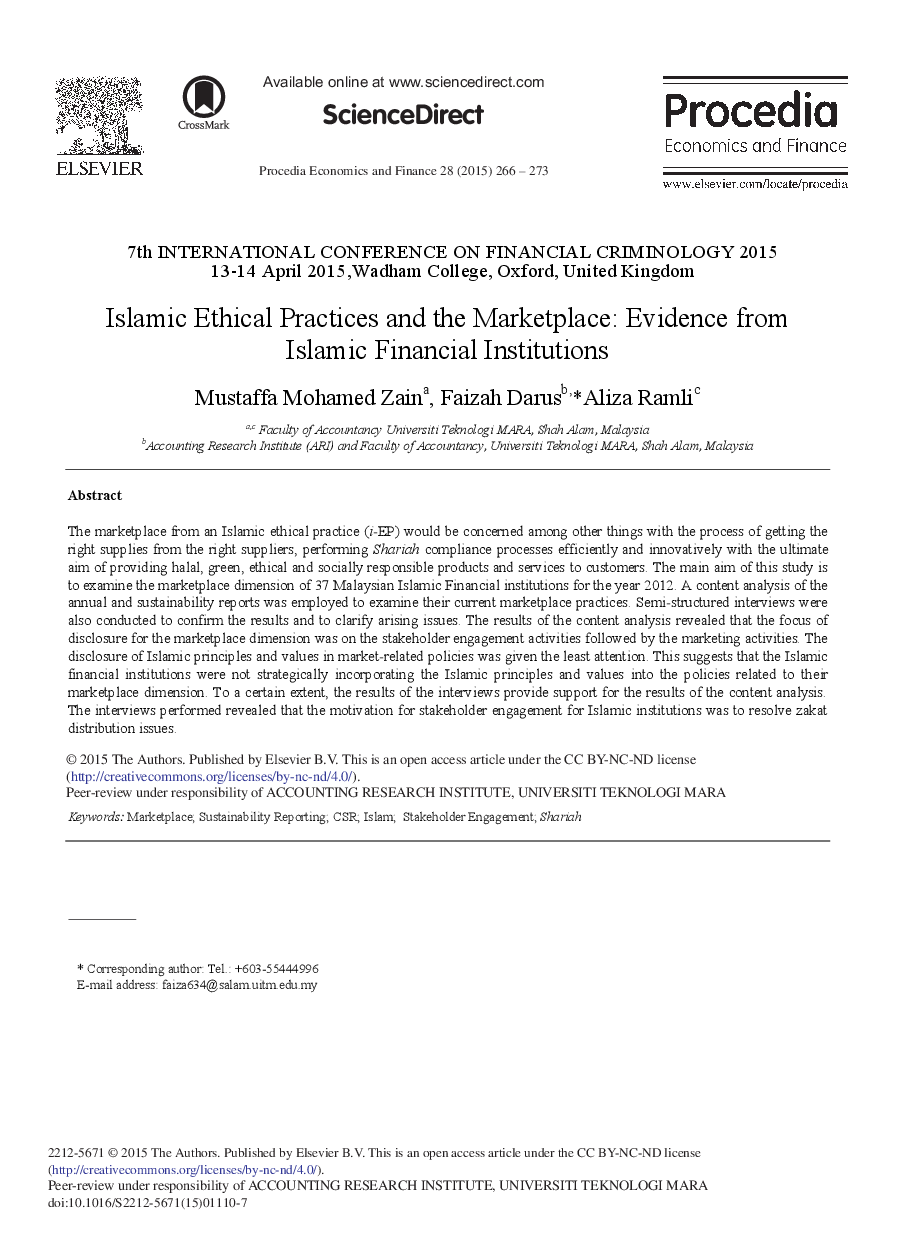ترجمه فارسی عنوان مقاله
شیوه های اخلاقی اسلامی و بازار: سند از موسسات مالی اسلامی
عنوان انگلیسی
Islamic Ethical Practices and the Marketplace: Evidence from Islamic Financial Institutions ☆
| کد مقاله | سال انتشار | تعداد صفحات مقاله انگلیسی |
|---|---|---|
| 40804 | 2015 | 8 صفحه PDF |
منبع

Publisher : Elsevier - Science Direct (الزویر - ساینس دایرکت)
Journal : Procedia Economics and Finance, Volume 28, 2015, Pages 266–273
ترجمه کلمات کلیدی
بازار - گزارشگری پایداری - CSR - اسلام - ذینفعان نامزدی - شریعت
کلمات کلیدی انگلیسی
Marketplace; Sustainability Reporting; CSR; Islam; Stakeholder Engagement; Shariah

